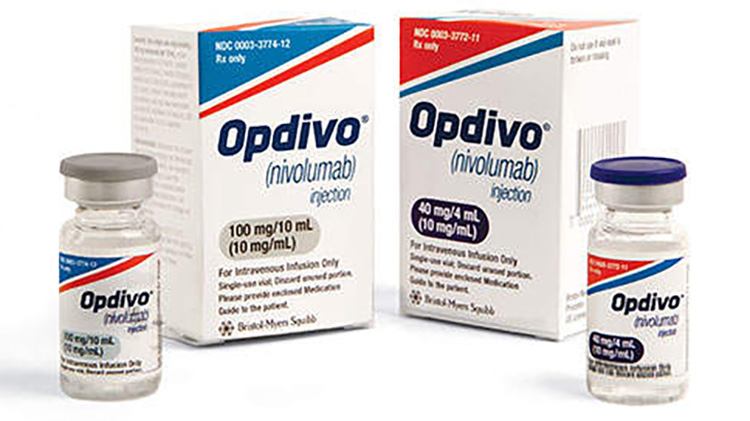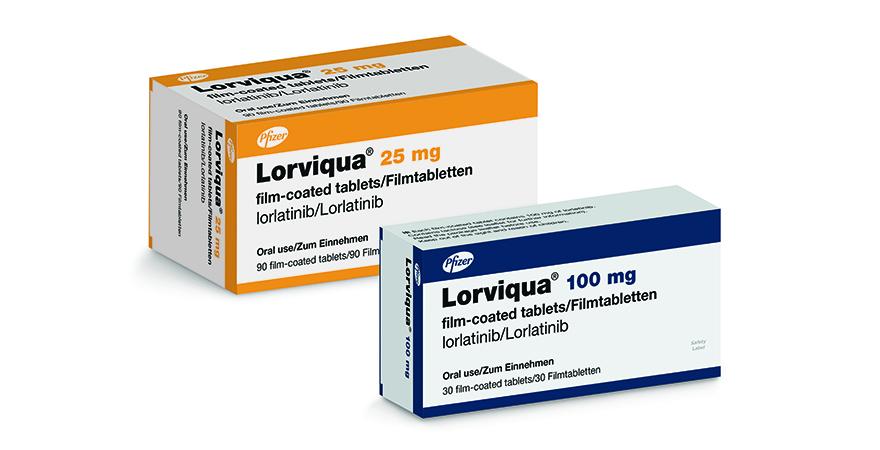Opdivo (Nivolumab) vs Lorviqua (lorlatinib)
Opdivo (Nivolumab) vs Lorviqua (lorlatinib)
Opdivo (nivolumab) is an immune checkpoint inhibitor that works by enhancing the body's immune response against cancer cells, commonly used in various types of cancers, including melanoma, lung cancer, and kidney cancer. Lorviqua (lorlatinib), on the other hand, is a targeted therapy specifically designed to inhibit certain mutations in the ALK gene and is used primarily for non-small cell lung cancer (NSCLC) that is ALK-positive. The choice between Opdivo and Lorviqua would depend on the specific type and genetic characteristics of the cancer; for instance, Lorviqua would be considered in cases where the cancer cells have ALK mutations, whereas Opdivo could be used for a broader range of cancers, but the decision should be guided by a healthcare professional's evaluation of the patient's individual condition.
Difference between Opdivo and Lorviqua
| Metric | Opdivo (Nivolumab) | Lorviqua (lorlatinib) |
|---|---|---|
| Generic name | Nivolumab | Lorlatinib |
| Indications | Metastatic melanoma, non-small cell lung cancer, renal cell carcinoma, classical Hodgkin lymphoma, squamous cell carcinoma of the head and neck, urothelial carcinoma, colorectal cancer | Non-small cell lung cancer (NSCLC) with ALK or ROS1 gene mutations |
| Mechanism of action | Programmed death receptor-1 (PD-1) blocking antibody | ALK and ROS1 tyrosine kinase inhibitor |
| Brand names | Opdivo | Lorviqua |
| Administrative route | Intravenous infusion | Oral |
| Side effects | Fatigue, rash, musculoskeletal pain, pruritus, diarrhea, nausea, decreased appetite, cough, dyspnea, constipation, vomiting, etc. | Edema, peripheral neuropathy, cognitive effects, dyspnea, weight gain, fatigue, arthralgia, mood effects, diarrhea, etc. |
| Contraindications | Hypersensitivity to nivolumab or any of its excipients | Hypersensitivity to lorlatinib or any of its excipients |
| Drug class | Immune checkpoint inhibitor | Tyrosine kinase inhibitor |
| Manufacturer | Bristol-Myers Squibb | Pfizer |
Efficacy
Overview of Opdivo (Nivolumab) in Lung Cancer Treatment
Opdivo (Nivolumab) is a programmed death receptor-1 (PD-1) blocking antibody used in the treatment of various forms of cancer, including lung cancer. It has been approved for the treatment of patients with metastatic non-small cell lung cancer (NSCLC) with progression on or after platinum-based chemotherapy. Patients whose tumors express PD-L1, as determined by an FDA-approved test, have been found to benefit from Opdivo. Clinical trials have demonstrated that Opdivo can lead to improved overall survival compared to docetaxel in previously treated NSCLC patients. Its efficacy has been observed across different histologies and regardless of PD-L1 expression level, although patients with higher PD-L1 expression may derive more benefit.
Opdivo's Efficacy in Advanced Lung Cancer
In advanced stages of lung cancer, Opdivo has shown efficacy in increasing patient survival rates. The CheckMate-057 trial, a pivotal phase III study, showed that Opdivo improved overall survival in patients with advanced non-squamous NSCLC after the failure of chemotherapy. Additionally, the CheckMate-017 study demonstrated a survival benefit of Opdivo over docetaxel in the treatment of squamous NSCLC. These studies have established Opdivo as a significant therapeutic option for patients with previously treated metastatic NSCLC.
Lorviqua (Lorlatinib) and Its Role in Lung Cancer
Lorviqua (lorlatinib) is a third-generation anaplastic lymphoma kinase (ALK) inhibitor designed to target the most common ALK mutations that drive resistance to earlier ALK inhibitors. It is indicated for the treatment of patients with ALK-positive metastatic NSCLC who have progressed on crizotinib and at least one other ALK inhibitor for metastatic disease, or whose disease has progressed on alectinib or ceritinib as the first ALK inhibitor therapy for metastatic disease. Clinical trials have shown that Lorviqua is effective in patients with ALK-positive NSCLC, including those with central nervous system (CNS) metastases, demonstrating both systemic and intracranial responses.
Efficacy of Lorviqua in Treating ALK-Positive NSCLC
The efficacy of Lorviqua in treating ALK-positive NSCLC has been supported by the results of a non-randomized, dose-ranging and activity-estimating, multi-cohort, multicenter phase 1/2 study. Patients treated with Lorviqua have shown high response rates, with a considerable number achieving systemic and intracranial disease control. This has been particularly impactful for patients with CNS involvement, where Lorviqua has demonstrated a notable ability to penetrate the blood-brain barrier and elicit a response in brain metastases, a common and challenging aspect of ALK-positive NSCLC treatment.
Regulatory Agency Approvals
Opdivo
-
European Medical Agency (EMA), European Union

-
Food and Drug Administration (FDA), USA

-
Health Canada

-
Pharmaceuticals and Medical Devices Agency (PMDA), Japan

-
Therapeutic Goods Administration (TGA), Australia

-
Medsafe (NZ)

Lorviqua
-
European Medical Agency (EMA), European Union

-
Food and Drug Administration (FDA), USA

-
Health Canada

-
Therapeutic Goods Administration (TGA), Australia

Access Opdivo or Lorviqua today
If Opdivo or Lorviqua are not approved or available in your country (e.g. due to supply issues), you can access them via Everyone.org.
How it works

Make an enquiry
Choose the medicine you want to buy, answer a couple of questions, and upload your prescription to speed things up. We’ll get back to you within 24 hours.


Make an enquiry
Choose the medicine you want to buy, answer a couple of questions, and upload your prescription to speed things up. We’ll get back to you within 24 hours.


Breeze through the paperwork
We'll guide you through the required documents for importing unapproved medicine, ensuring you have all the necessary information.


Get a personalized quote
We’ll prepare a quote for you, including medicine costs and any shipping, administrative, or import fees that may apply.


Receive your medicine
Accept the quote and we’ll handle the rest - sourcing and safely delivering your medicine.

Some text on this page has been automatically generated. Speak to your physician before you start a new treatment or medication.
Let's talk
If you have any questions, call us or send us a message through WhatsApp or email:
Contact us




